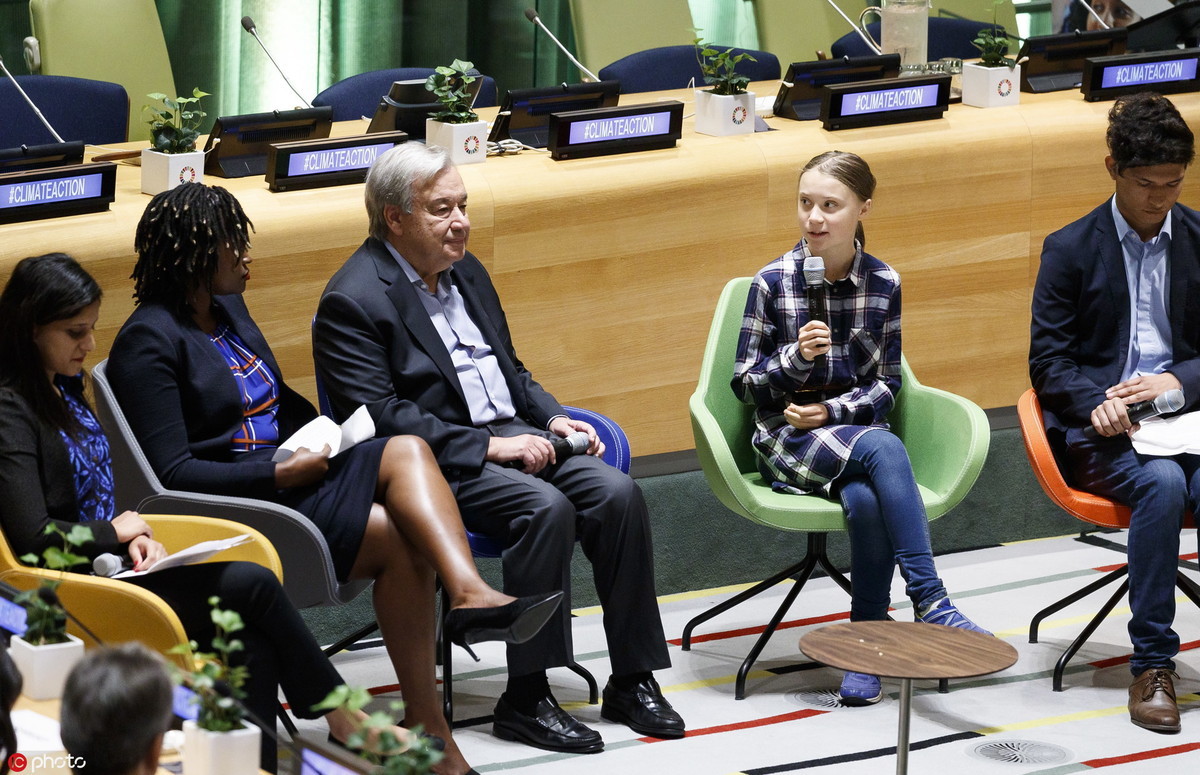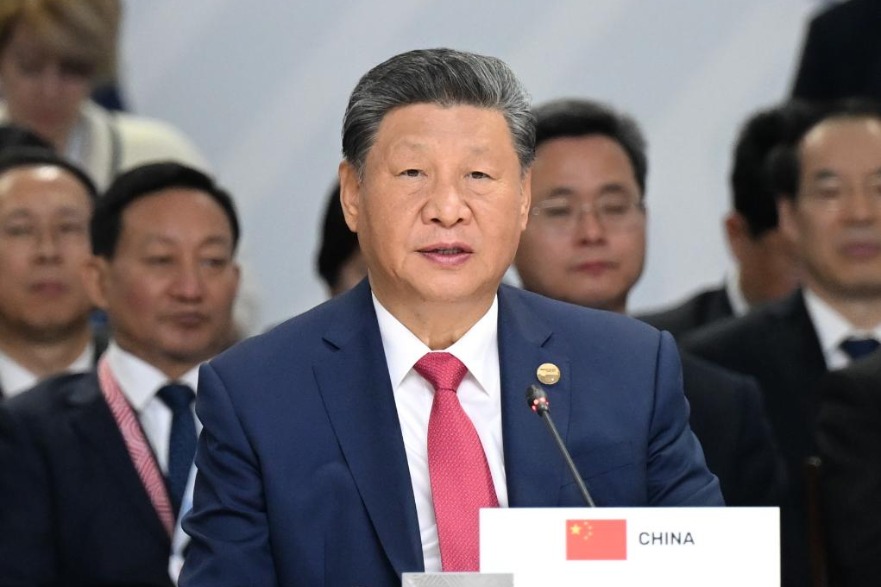World leaders must raise ambitions in climate fight


The 30,000 participants to the UN Climate Change Conference in Madrid are mostly enthusiastic climate campaigners, from 16-year-old Swedish girl Greta Thunberg who inspired a massive student climate movement to 77-year-old former New York mayor Michael Bloomberg who said that he would ensure the United States rejoins the Paris Agreement if he wins the presidential race next year.
They are attending the 13-day conference which aims to "raise ambition" and set out a plan through which countries will make new climate pledges before the end of next year.
But the outcome of the conference, called COP25, is likely to be disappointing when it concludes on Friday, because countries are unlikely to show the ambition urged by scientists and young climate activists.
It will be a betrayal of the warning in a recent report signed by 11,000 scientists from 153 countries, a betrayal of the outcry by Carlon Zackhras, a teenager from the Marshall Islands who talked on Monday about his government's plan to "elevate" the islands to avoid being submerged by the rising ocean, and a betrayal of the millions of schoolchildren led by Thunberg who believe that adults are negotiating away their future.
Young activists are playing a vital role in the global fight against climate change today. So it's no surprise that Time magazine on Wednesday named Thunberg "Person of the Year", a title she very well deserves.
The US' withdrawal from the Paris accord has greatly weakened the global momentum in the fight against climate change in the past years. The US is by far the largest historical emitter in the world, followed by the European Union. And the US' per capita emission is still more than twice that of China's.
The trade wars triggered by the US have also made things worse by distracting attention, weakening trust among nations and slowing down the economic growth of many countries, all of which are bad for the world to combat climate change.
On the other hand, developing countries want to shoulder common but differentiated responsibilities, because the developed countries are responsible for most of the historical emissions. If this is not respected, many developing countries will be denied the opportunity to develop their economies and lift their people out of poverty.
On Monday, UN Secretary-General Antonio Guterres called for further investment from rich countries and support for poor nations to make the changes needed to reduce greenhouse gas emissions and cope with the impact of global warming.
As a journalist, I have to say that major news channels and newspapers are still ignoring or giving minimal coverage to COP25 despite the "climate emergency" declared by scientists and governments.
Some major cable news networks have covered campus shootings 24x7 and spent hours covering protests. But they didn't give live coverage to Guterres when he urged world leaders to act during his opening speech at COP25 on Dec 2, or when leading climate scientists warned of a disaster if the world did nothing and instead continued to release more carbon emissions.
That is why fake news like "climate change is a Chinese hoax" still seems to have a market in some places despite scientific evidence to the contrary.
I didn't get to ask Thunberg my question on Monday. So here is the question. What would the younger generations do if they find on Friday that their desperate calls are not heeded by government leaders and their future is further endangered due to a lack of strong political will on the part of politicians?
The author is chief of China Daily EU Bureau based in Brussels.
































